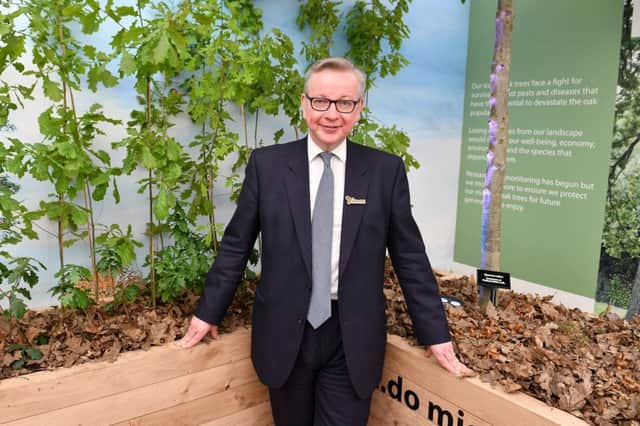Paris Gourtsoyannis: Indyref2 may be battle of '˜identitarian' politics


They got the band back together, and it couldn’t have come at a better time.
Just as Nicola Sturgeon shifted the never-ending independence campaign tour bus up a gear, the top names from the Better Together campaign gathered across Parliament Square from Westminster to replay their greatest hits.
Advertisement
Hide AdAdvertisement
Hide AdIt was like listening to ageing rockers exchanging stories about their past glories as Alistair Darling, Jim Murphy, Ruth Davidson and company gathered for yesterday’s Policy Exchange conference on the Union. That said, there seems to be little if any enthusiasm to get back out on the road and fight another referendum, even though Murphy pledged to pull his two Irn-Bru crates out of retirement if the fans demand it.
Like any former bandmates contemplating a reunion, some artistic differences have emerged, even in the four years since they split up to pursue solo projects. Darling, Murphy and Michael Gove all believe a second independence referendum is never going to happen – at least in their lifetimes. Support for the SNP is slipping and polling on Scottish independence shows enthusiasm has dipped since 2014. Post-Brexit the uncertainty of being on the outside of the UK and the EU would be even greater, and even less appealing.
Anyway, there is “no appetite” for another divisive referendum among Scottish voters, they claim, and the UK Government isn’t going to give permission for one anyway. The new backing vocalist, Arlene Foster of the DUP, tends to agree.
Davidson, on the other hand, brought some different influences to the gathering. Despite the fact there hasn’t been a surge in support for independence, it hasn’t fallen very far, either. Between 40 and 45 per cent of Scots still want to leave the UK, a historically high figure and a worrying one for someone who believes the Union should have as broad an appeal as possible.
The UK Government is at least partly to blame, Davidson told her fans – because when you talk about a right-of-centre gathering in London, that’s what they are. British society is too London-centric, and too much of the UK Government is tied up in the capital. Civil servants and national institutions like museums should have outposts across the UK, and the way government functions in regards to devolved nations should change – although she stopped short of endorsing federalism.
Opinion also seems to be divided about the old hits, too. Davidson wants Unionism to appeal more to the heart as well as the head, and said it shouldn’t be reduced to a “transactional” relationship. Lord Darling, meanwhile, offered a strong defence of his strategy in 2014, which was to appeal to what was dubbed the ‘fiscal pragmatism’ of the third of voters in the middle, who might have backed independence had they not been convinced of the cost of doing so. That strategy will never shed the other name it came to be known by, however unfairly – Project Fear.
The overall effect of hearing from so many of Better Together’s leaders is to get a sense that while the pro-independence camp can’t decide on a strategy, neither is there a clear idea of how the Unionist side would fight a second referendum campaign, particularly after Brexit.
What was otherwise an eye-opening and worthwhile event was let down by the lack of any representative from the opposing strands of nationalism in Britain – that is Irish, Welsh or Scottish. There was one form of nationalism that was on display, though: the kind that won the EU referendum for the Leave campaign, and was represented at the conference by Gove, one of its key architects.
Advertisement
Hide AdAdvertisement
Hide AdIn his speech, Gove accused SNP leaders of abetting what he called the ‘identitarian’ nationalism of flag-waving cybernats. But he was brazenly slippery in the Q&A session that followed, refusing to engage with the suggestion that elements of the Vote Leave campaign that he helped lead had appealed to the worst identitarian impulses.
This was a campaign, remember, that told voters Turkey was joining the EU (a lie of omission, since Turkey’s accession has only grown less likely over the 30 years it has been in limbo) and suggested the door would be opened to 76 million Turks (a scare story more distant from reality than any bogus Treasury forecast). Ultimately, that is the lesson for both sides in any future independence referendum campaign. Low-fact identity politics – it’s what the kids are listening to these days.
